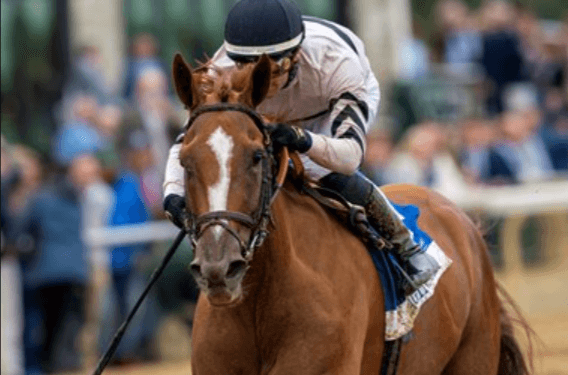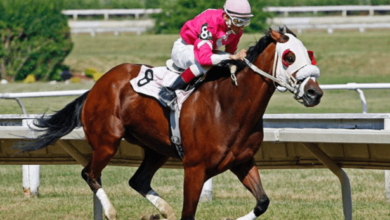What are the key factors you consider when selecting a horse for racing?

Selecting the right horse for racing is both an art and a science. It involves a careful analysis of various factors, each playing a crucial role in determining the potential success of the horse on the racetrack. Whether you’re a seasoned breeder, an aspiring owner, or a passionate enthusiast, understanding these key factors can significantly enhance your decision-making process and increase your chances of selecting a winning horse.
Introduction
Horse racing is a sport steeped in tradition, excitement, and high stakes. The journey to the winner’s circle begins long before the starting gates open; it starts with the careful selection of the right horse. Selecting a horse for racing requires a blend of knowledge, intuition, and meticulous research. This article delves into the critical factors that should be considered when choosing a horse for racing, ensuring that you make an informed and strategic choice.
Pedigree and Bloodlines
One of the first factors to consider when selecting a horse for racing is its pedigree. The bloodline of a horse can provide valuable insights into its potential performance. Horses with a lineage of successful racers are more likely to inherit desirable traits such as speed, stamina, and temperament.
Analyzing Pedigree Charts
Pedigree charts are essential tools that trace the ancestry of a horse. They help identify key ancestors that may influence the horse’s abilities. When examining a pedigree chart, look for ancestors who have a history of racing success, particularly those that have excelled at the distances and surfaces you are interested in.
Physical Conformation
Evaluating Conformation
The physical conformation of a horse refers to its body structure and is a critical factor in determining its suitability for racing. A horse with excellent conformation will have balanced proportions, strong limbs, and an athletic build. Key aspects to evaluate include the horse’s legs, back, shoulders, and overall symmetry.
Common Conformation Faults
While no horse is perfect, certain conformation faults can significantly impact performance and predispose a horse to injuries. Common faults include crooked legs, weak joints, and a long back. Understanding these faults and their implications can help in making a more informed selection.
Health and Soundness
A horse’s health and soundness are paramount when considering it for racing. Comprehensive health screenings, including veterinary examinations and diagnostic tests, can reveal underlying issues that might affect performance. These screenings should include assessments of the heart, lungs, and musculoskeletal system.
A sound horse will exhibit a fluid, balanced gait and show no signs of lameness or discomfort. Observing the horse’s movement at different gaits, both in-hand and under saddle, can provide valuable insights into its soundness and potential for racing.
Temperament and Behavior
The temperament of a horse is another crucial factor in its racing potential. A good racehorse needs to be both calm and responsive. Horses that are too high-strung may waste energy and become difficult to manage, while those that are too placid may lack the competitive edge needed for racing.
Behavioral observations can reveal a lot about a horse’s temperament. Look for horses that are alert, responsive to their handlers, and exhibit a willingness to work. Signs of nervousness or aggression can be red flags indicating potential issues down the line.
Training Potential and Adaptability
A horse’s ability to learn and adapt to training is critical for success on the track. Some horses may have the physical attributes necessary for racing but lack the mental aptitude to cope with the demands of training. Evaluate the horse’s responsiveness to commands and its ability to handle different training scenarios.
Adaptability to Racing Conditions
Horses that adapt well to different racing conditions, such as changes in track surfaces and weather, are more likely to succeed. Observing the horse’s performance in various environments during training sessions can provide insights into its adaptability.
Genetic Testing and Technological Advancements
Advancements in genetic testing have revolutionized the horse racing industry. Genetic tests can identify specific markers associated with traits like speed, endurance, and disease resistance. Utilizing these tests can provide an additional layer of information to guide your selection process.
Modern technology offers various tools to evaluate a horse’s potential. These include gait analysis systems, heart rate monitors, and thermal imaging. These tools can provide objective data to complement traditional evaluation methods.
Nutrition and Care History
A horse’s nutritional history can significantly impact its overall health and performance. Horses that have been well-fed with a balanced diet tailored to their developmental stage are more likely to thrive. Reviewing the horse’s diet and feeding regimen can offer insights into its care and management.
The care history of a horse, including its living conditions, grooming practices, and veterinary care, can influence its condition and performance. Horses that have been raised in a healthy, stress-free environment with regular veterinary care are better candidates for racing.
Age and Maturity
The age at which a horse begins racing can affect its performance and longevity in the sport. While younger horses may have more potential for growth and development, older horses often have the advantage of experience and maturity. Finding the right balance is key.
Signs of physical and mental maturity include a well-developed musculature, balanced conformation, and a calm demeanor. Horses that exhibit these signs are more likely to handle the pressures of racing effectively.
Certain genetic traits are highly desirable in racehorses. These include traits related to speed, stamina, and physical resilience. Understanding the genetic predispositions of a horse can help predict its potential performance on the track.
Impact of Inbreeding
Inbreeding, or the mating of closely related horses, can lead to the concentration of both desirable and undesirable traits. While inbreeding can enhance specific characteristics, it can also increase the risk of genetic defects. Evaluating the degree of inbreeding in a horse’s pedigree is essential.
Historical Performance and Records
If the horse has a racing history, analyzing its past performance can provide valuable insights into its potential. Look at factors such as win/loss records, times, and the types of races it has competed in. Consistent performance in races can be a strong indicator of future success.
Track records and notable achievements can also highlight a horse’s capabilities. Horses that have set records or won prestigious races demonstrate their potential to compete at high levels.
Different horses perform better on different types of track surfaces, such as dirt, turf, or synthetic tracks. Understanding a horse’s surface preference can help in selecting races where it is more likely to excel.
Distance Specialization
Horses may also have a preferred racing distance. Some horses excel in sprints, while others perform better in longer races. Identifying a horse’s distance specialization can guide you in choosing the right races.
Training and Racing Strategy
The training regimen of a horse can significantly influence its performance. Horses that have been subjected to a well-structured and consistent training program are more likely to reach their full potential. Evaluating the horse’s training history and current regimen is crucial.
Racing Strategy Compatibility
Different horses have different racing styles, such as leading from the front or coming from behind. Understanding a horse’s natural racing strategy can help in selecting races that suit its style and maximizing its chances of success.
Conclusion
Selecting a horse for racing is a multifaceted process that requires careful consideration of numerous factors. By evaluating pedigree, physical conformation, health, temperament, and various other aspects, you can make a more informed decision and increase your chances of success on the track. Remember, the right horse can make all the difference, turning your racing aspirations into reality
What role does pedigree play in selecting a racehorse? Pedigree is crucial as it provides insights into the horse’s potential based on the success of its ancestors. Horses from successful bloodlines are more likely to inherit desirable traits for racing.
How important is a horse’s conformation? Conformation is vital because it affects the horse’s ability to perform and stay sound. Balanced proportions and strong limbs are key indicators of good conformation.
What should I look for in a horse’s temperament? A good racehorse should be calm yet responsive, with a willingness to work and compete. Temperament affects how the horse handles the pressures of training and racing.
How can genetic testing help in selecting a racehorse? Genetic testing can identify markers for traits like speed and endurance, providing additional data to guide your selection process.
Why is a horse’s health and soundness crucial? Health and soundness are critical to ensure the horse can handle the physical demands of racing. Comprehensive health screenings can identify potential issues early on.
What is the significance of a horse’s racing strategy? Understanding a horse’s natural racing strategy can help in selecting races that suit its style, whether it prefers to lead from the front or come from behind.





